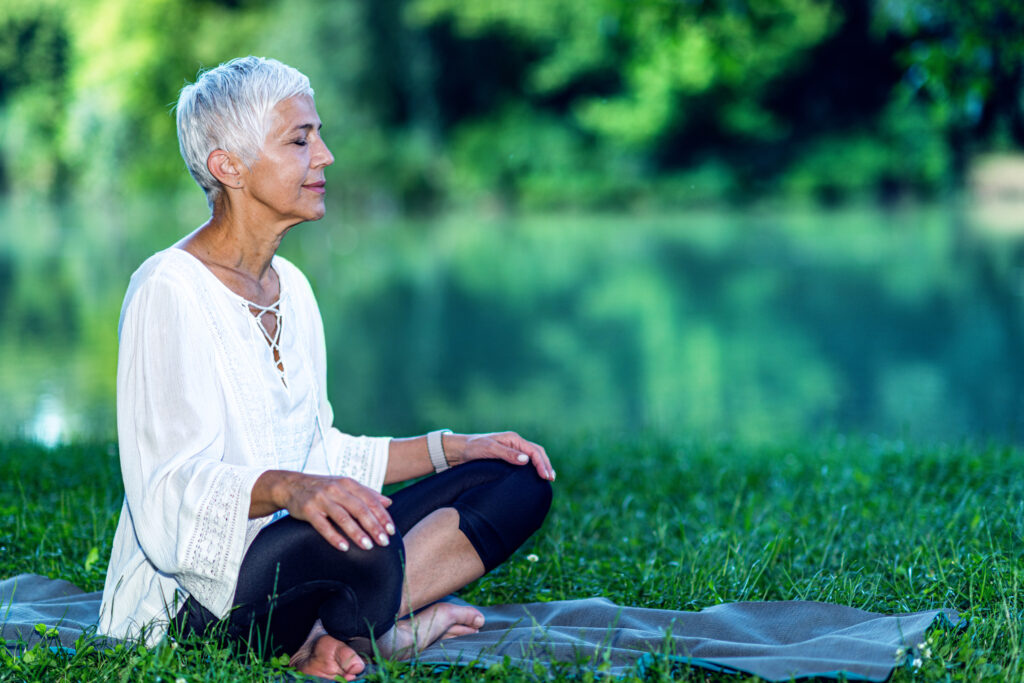The secret habit that quietly extends your lifespan.

Most people think longevity is all about kale smoothies and morning jogs, but the truth runs deeper than treadmills or green drinks. A small, often overlooked habit could make a surprisingly big difference in how long you live—and how well you age.
Science is beginning to uncover that what really counts isn’t just what you put in your body, but how you nourish your mind and emotions every single day.
1. Practicing gratitude daily changes your body chemistry.

Taking a few moments each day to recognize what’s going right recalibrates your nervous system in powerful ways. Gratitude lowers stress hormones like cortisol and boosts dopamine, the feel-good chemical tied to motivation and satisfaction. It’s not fluffy psychology—it’s biology at work. People who practice gratitude regularly often sleep better, have lower blood pressure, and report fewer aches and pains.
It also shifts perspective. When your attention focuses on what’s good instead of what’s missing, your body relaxes. That calm reduces chronic inflammation—the quiet culprit behind aging and disease. Over time, the act of pausing to appreciate your life rewires your brain to respond more gently to challenges, extending both health span and happiness.
2. Maintaining strong social ties keeps you biologically younger.

Regular connection with friends and loved ones might be the most potent longevity medicine there is. Loneliness raises stress hormones, damages the immune system, and accelerates cellular aging—comparable to smoking fifteen cigarettes a day. Staying socially engaged helps regulate emotions and strengthens the body’s resilience to illness.
Simple interactions—a walk with a neighbor, a call to an old friend, or even chatting with your barista—stimulate oxytocin, the bonding hormone. That single chemical helps lower blood pressure and inflammation while boosting immune function. Relationships literally protect your heart, both emotionally and physically.
3. Getting consistent sleep restores your cells’ ability to repair.

You can eat perfectly and exercise daily, but if you’re not sleeping well, your body never fully recovers. Deep sleep is when your brain clears toxins, your muscles repair, and your immune system resets. It’s your built-in restoration system—and most people underestimate its power.
Chronic sleep deprivation messes with metabolism, memory, and mood. Over years, it accelerates cognitive decline and weakens cardiovascular health. Prioritizing consistent bedtime routines and protecting your sleep environment might be one of the simplest, most underrated ways to extend your life naturally.
4. Laughing often floods your body with healing chemistry.

Laughter might sound trivial, but it’s a biological jackpot. Every time you laugh, your heart rate increases briefly, your muscles relax afterward, and endorphins surge through your bloodstream. It’s an instant anti-stress mechanism that lowers tension faster than deep breathing.
The effects aren’t short-lived either. Regular laughter strengthens immune cells, reduces inflammation, and improves vascular function. It bonds people, relieves anxiety, and changes how your body perceives pain. A few good laughs each day can literally shift your chemistry toward health and longevity—no supplements required.
5. Staying curious protects your brain from decline.

Curiosity isn’t just a personality trait; it’s a mental workout. Learning new things forms fresh neural connections, strengthening cognitive flexibility and memory retention. It keeps the brain young by forcing it to adapt and reorganize.
When you read, explore, or ask new questions, your dopamine system lights up, fueling motivation and emotional balance. Studies show that people who remain curious as they age maintain sharper thinking and better problem-solving abilities. It’s the habit that makes life feel longer because you’re genuinely engaged in it.
6. Spending time in nature recalibrates your internal rhythm.

Being outdoors reduces stress, improves immunity, and stabilizes your circadian rhythm. Natural light signals your brain when to wake, sleep, and produce hormones—all critical to longevity. The air quality, movement, and quiet of nature also counteract the sensory overload of modern life.
Even short walks among trees or by water restore focus and emotional balance. People who regularly spend time outdoors report fewer chronic conditions and better mental health. It’s like your body remembers what peace feels like, and everything—heart rate, blood pressure, even mood—aligns accordingly.
7. Giving back strengthens your sense of purpose.

Helping others releases powerful neurochemicals that make you feel more connected and less stressed. Purpose-driven behavior reduces depression and lengthens telomeres—the protective caps on your DNA that shorten with age. It’s literal proof that kindness can extend your life.
When you contribute, you feel needed and valued, which activates reward pathways that stabilize mood and regulate immune responses. Volunteering, mentoring, or simply being available for someone in need doesn’t just improve the world—it physically sustains your own vitality.
8. Practicing mindfulness keeps your heart and mind in sync.

Mindfulness reduces chronic stress, which is one of the biggest contributors to early aging. When you slow down and become aware of your thoughts, your nervous system switches from fight-or-flight to rest-and-digest mode. That shift calms the heart, relaxes muscles, and balances blood sugar.
Daily mindfulness—through breathwork, journaling, or just quiet observation—teaches the brain to regulate emotions and stay present. Over time, that reduces inflammation and boosts immune resilience. The result isn’t just a calmer life—it’s a longer one, lived with clarity and grace.
9. Drinking enough water supports every cellular function.

Hydration sounds basic, but most people live in a mild state of dehydration without realizing it. Every organ, from your brain to your liver, depends on water to function efficiently. When you’re hydrated, your cells transport nutrients, flush toxins, and regulate temperature with ease.
Even small drops in hydration can affect cognition, mood, and metabolism. Over time, chronic dehydration contributes to fatigue and faster cellular aging. Keeping a steady intake of water—especially as you age—is one of the simplest habits for longevity that costs nothing and changes everything.
10. Having something to look forward to boosts your lifespan.

Hope and anticipation can be as healing as medicine. When you plan something enjoyable—a trip, a hobby, a gathering—your brain releases serotonin and dopamine, reducing stress and strengthening your immune system. That mental uplift has real physical consequences.
Having goals, even small ones, gives life rhythm and direction. It makes waking up feel purposeful. People who look forward to things tend to stay more active, optimistic, and socially engaged—all proven predictors of a longer, healthier life.
